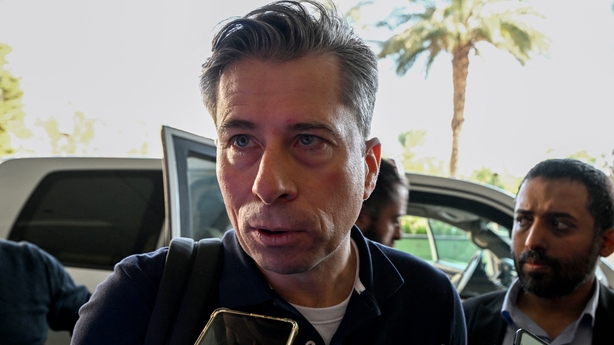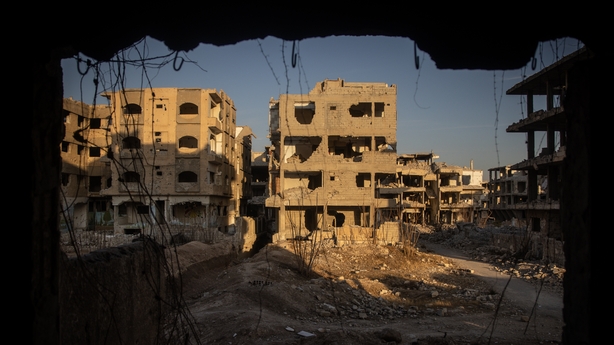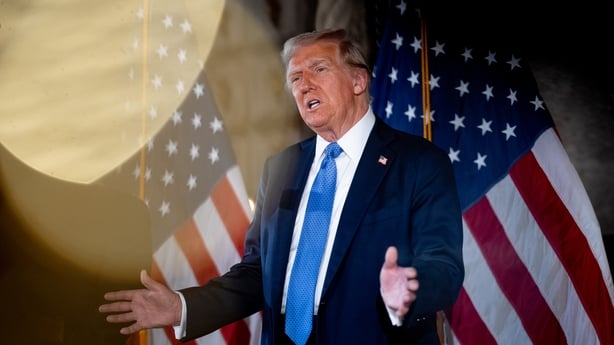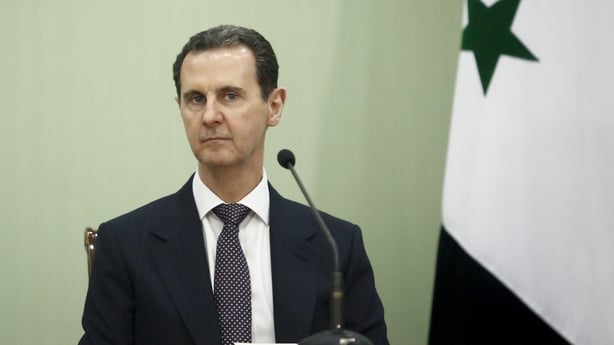The UN humanitarian chief has said that huge amounts of aid were needed in war-ravaged Syria following the ouster of president Bashar al-Assad, saying the world body was ready to "go big".
Mr Assad fled to Russia just over a week ago, as a lightning offensive spearheaded by the Islamist Hayat Tahrir al-Sham (HTS), which ended five decades of repressive rule by Mr Assad's family.
"The situation is very dramatic," Tom Fletcher told journalists in Damascus.
"Things are moving very, very fast," he said, adding that "the key thing is that the Syrian people are in charge of their own destiny now.
"The international community has a responsibility to be at their side".
Pointing out that "seven in 10 Syrians are needing help right now", he stressed that the UN wanted "to get a massive flow of support into Syria, really scale up fast".
"Food, medicine, shelter, but also the funds to redevelop the Syria that people can believe in again," he said.

"We want a hopeful narrative for Syria."
Mr Fletcher said the UN humanitarian agency OCHA had "ambitious plans" for Syria.
"Much depends on the conversations we have with the authorities here," acknowledged the UN aid chief, who posted a picture on X showing him holding a "practical, problem-solving meeting" with Syrian interim prime minister Mohammad al-Bashir.
Practical, problem-solving meeting with Eng. Mohammed al-Bashir, new Prime Minister of the Syrian Transitional Government. I am confident we will have a basis on which to ramp up the humanitarian support that the people of Syria need. pic.twitter.com/UGCnOTxKkc
— Tom Fletcher (@UNReliefChief) December 16, 2024
"I am confident we will have a basis on which to ramp up the humanitarian support that the people of Syria need," he said in the post.
How much assistance could be provided would also depend "on whether we can secure the funding that we need from the international community", Mr Fletcher told reporters.
But, he stressed, "we're ready to go big".
"This is a moment where we all have to rally around behind the Syrian people and to support them to rebuild security, justice, opportunity, and the country that they deserve."

Syria's economy remains constrained by punishing US and EU sanctions.
Asked if he would encourage lifting the sanctions on Syria, Mr Fletcher said it was "very early days".
"It all depends on whether we have this sense of open dialogue and a willingness to really scale up the partnership," he said.
"This is a very fluid time. Things are in motion and we've got to be agile, creative, flexible."
Trump calls rebel victory in Syria 'unfriendly takeover' by Turkey
President-elect Donald Trump characterised the rebel ouster of Syrian strongman Bashar al-Assad as an "unfriendly takeover" by US ally Turkey as he addressed the conflict at a news conference.
"I think Turkey is very smart...Turkey did an unfriendly takeover, without a lot of lives being lost.
"I can say that Assad was a butcher, what he did to children," Mr Trump told reporters at his residence in Florida.
Since the early days of the anti-Assad revolt that erupted in 2011, Turkey has been seen as a key backer of the opposition to his rule.

It has hosted the political opposition, millions of refugees, and also backed rebel groups fighting the army.
Years into the war, HTS took over parts of northwestern Syria, which borders Turkey. It was from there that the organization and allied rebel groups launched the offensive that ousted Mr Assad from power.
Turkey has carried out military strikes inside Syria and has said it is ready to provide armed support to the country's new Islamist-led government set up by the rebels.
Turkish President Recep Tayyip Erdogan's top priority in Syria was to rid the country of Kurdish separatist fighters - a goal supported by the new government, it has said.
"Turkey is a major force, by the way, and Erdogan is somebody I got along with great," Mr Trump said.
"But he has a major military force. And his has not been worn out with war...He's built a very strong, powerful army."
Assad says he left Syria on evening of day Damascus fell
Ousted Syrian leader Bashar al-Assad has said he was evacuated to Russia from the Hmeimim base in Syria on the evening of 8 December as it came under drone attacks, after leaving Damascus that morning with opposition fighters closing in.
The comment, in a statement that was published on the Syrian presidency's Telegram channel and dated 16 December from Moscow, was Mr Assad's first in public since he was toppled more than a week ago by a rebel offensive.

Mr Assad denied that he left Syria in the final hours of battles.
He said he remained in Damascus carrying out his duties until the early hours of 8 December before moving to Lattakia in coordination with Russia as rebel forces entered Damascus.
He added that Russia requested the evacuation of the Hmeimim air base on the evening of 8 December as it came under intensified attack from drone strikes.
Mr Assad said that at no point did he consider stepping down or seeking refuge, adding that the only course of action was to continue fighting against what he called "the terrorist onslaught".
Read more about the conflict in Middle East

